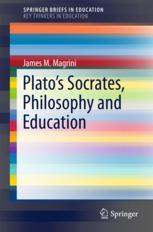

Most ebook files are in PDF format, so you can easily read them using various software such as Foxit Reader or directly on the Google Chrome browser.
Some ebook files are released by publishers in other formats such as .awz, .mobi, .epub, .fb2, etc. You may need to install specific software to read these formats on mobile/PC, such as Calibre.
Please read the tutorial at this link: https://ebookbell.com/faq
We offer FREE conversion to the popular formats you request; however, this may take some time. Therefore, right after payment, please email us, and we will try to provide the service as quickly as possible.
For some exceptional file formats or broken links (if any), please refrain from opening any disputes. Instead, email us first, and we will try to assist within a maximum of 6 hours.
EbookBell Team

5.0
38 reviewsThis book develops for the readers Plato’s Socrates’ non-formalized “philosophical practice” of learning-through-questioning in the company of others. In doing so, the writer confronts Plato’s Socrates, in the words of John Dewey, as the “dramatic, restless, cooperatively inquiring philosopher" of the dialogues, whose view of education and learning is unique: (1) It is focused on actively pursuing a form of philosophical understanding irreducible to truth of a propositional nature, which defies “transfer” from practitioner to pupil; (2) It embraces the perennial “on-the-wayness” of education and learning in that to interrogate the virtues, or the “good life,” through the practice of the dialectic, is to continually renew the quest for a deeper understanding of things by returning to, reevaluating and modifying the questions originally posed regarding the “good life.” Indeed Socratic philosophy is a life of questioning those aspects of existence that are most question-worthy; and (3) It accepts that learning is a process guided and structured by dialectic inquiry, and is already immanent within and possible only because of the unfolding of the process itself, i.e., learning is not a goal that somehow stands outside the dialectic as its end product, which indicates erroneously that the method or practice is disposable. For learning occurs only through continued, sustained communal dialogue.